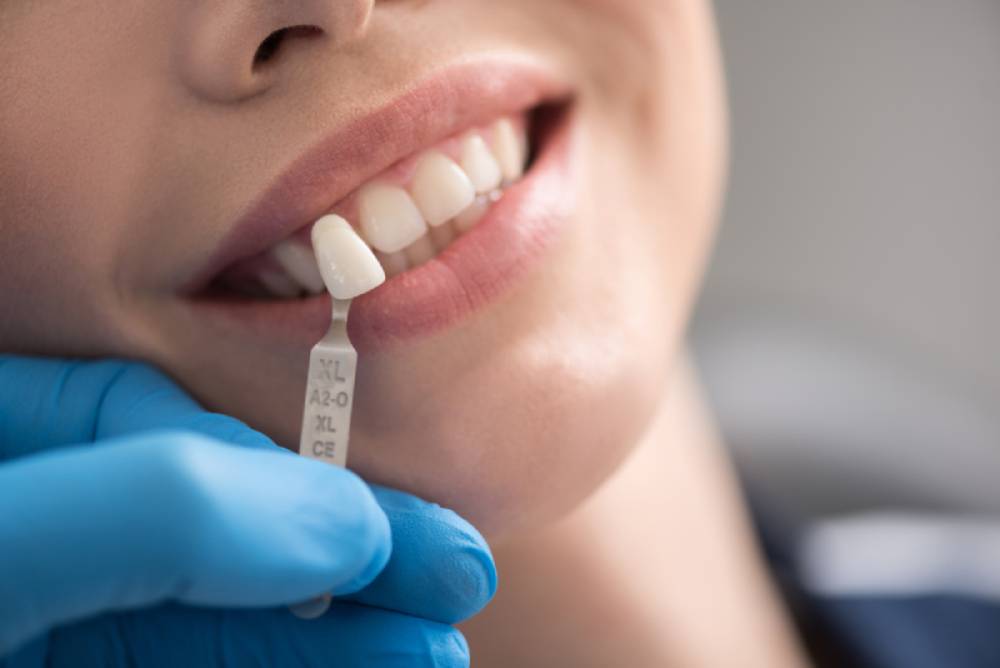Many patients often wonder if they need a dental crown. The question arises for a number of reasons, including concerns about the appearance, cost and complexities of the procedure. In this article we address the various concerns and explain the essential reasons why a dental crown may be necessary.
TL;DR:
Dental crowns are essential in cases of root canals, severe tooth damage, or large fillings, as they protect and restore tooth function and appearance. Modern crowns look natural, function like real teeth, and can last many years, though they cost more than fillings. Alternatives like fillings, inlays/onlays, or bonding may be suitable for less severe cases. Crowns may cause temporary sensitivity, but overall, they offer long-term strength, improved chewing, and enhanced aesthetics.
Restore Your Smile with a -> Dental Crown in Forest Hills, Queens! 🦷

When Is a Crown Essential?
There are three main reasons why doctors recommend the placement of a crown:
- Post Root Canal: Teeth that have undergone root canal treatment lose their vitality and become brittle over time. A crown is crucial to protect these teeth from further damage.
- Trauma and Wear: Teeth that have suffered damage due to trauma or excessive wear might require a crown to prevent further deterioration, such as cracking or splitting.
- Large Fillings: When a tooth has a large cavity or a filling that occupies more than two-thirds of the tooth’s width, a crown becomes essential to prevent breakage and protect the integrity of the tooth.
Addressing Common Concerns
Patients considering a crown often have several apprehensions:
- Appearance: Modern dental technology ensures that crowns can be made to look natural and harmonize with your surrounding teeth.
- Pain: The process of getting a crown is comparable to that of getting a filling and should not cause significant discomfort.
- Functionality: A well-made crown mimics the functionality of a natural tooth, maintaining proper chewing and aesthetics.
- Longevity and Cost: Although more expensive than a filling, a crown is an investment that offers extended durability and performance, potentially lasting decades.
Benefits of Dental Crowns
- Strength and Stability: Crowns act like a protective cap, shielding weakened or cracked teeth from further damage. This protection is crucial after procedures like root canals, large fillings, or significant decay.
- Improved Chewing Function: Damaged teeth can make chewing difficult and painful. Crowns restore the tooth’s natural shape and function, allowing you to enjoy your favorite foods comfortably again.
- Enhanced Appearance: Discolored, chipped, or misshapen teeth can impact your confidence. Crowns can be customized to match your surrounding teeth, creating a natural-looking, beautiful smile.
- Real-Life Example: Sarah suffered a chipped front tooth during a sporting event. A dental crown restored the tooth’s appearance and function, allowing her to smile confidently again.
Considerations for Dental Crowns
While crowns offer significant benefits, it’s important to be aware of some potential drawbacks:
- Sensitivity: Some patients experience temporary sensitivity to hot or cold after crown placement. This usually subsides within a few weeks.
- Cost: Dental crowns can be a significant investment. Discuss payment options with your dentist to ensure it fits your budget.
- Longevity: Crowns typically last for 5-15 years with proper care. However, factors like wear and tear can affect their lifespan.
When Crowns Aren’t the Only Option
Depending on the situation, other dental treatments might be considered:
- Fillings: For smaller areas of decay, fillings offer a less invasive and more cost-effective solution.
- Onlays/Inlays: These are partial crowns used when damage is limited to a specific area of the tooth.
- Dental Bonding: This technique uses resin to repair minor chips or cracks, offering a quicker and more affordable option.
Key Takeaways:
- When Dental Crowns Are Necessary:
- Post Root Canal: Protects brittle, non-vital teeth from future damage.
- Trauma or Wear: Shields damaged or worn-down teeth from cracking or splitting.
- Large Fillings: Reinforces teeth with fillings covering more than two-thirds of the tooth’s width.
- Common Patient Concerns:
- Appearance: Modern crowns blend naturally with surrounding teeth.
- Pain: The procedure is similar in discomfort to getting a filling.
- Functionality: Crowns restore chewing ability and maintain natural tooth function.
- Cost & Longevity: While more expensive than fillings, crowns are long-lasting and durable.
- Benefits of Dental Crowns:
- Protection: Acts as a strong cap over weakened teeth to prevent further damage.
- Functionality: Restores natural chewing and eliminates discomfort.
- Aesthetics: Improves the appearance of discolored, chipped, or misshapen teeth.
- Example: A crown restored both function and appearance for a chipped front tooth.
- Considerations and Potential Drawbacks:
- Sensitivity: Temporary hot or cold sensitivity may occur post-placement.
- Cost: Can be a significant financial investment; payment options should be discussed.
- Durability: Crowns usually last 5–15 years depending on care and usage.
- Alternative Treatment Options:
- Fillings: Suitable for smaller areas of decay.
- Onlays/Inlays: Partial crowns for localized tooth damage.
- Dental Bonding: Ideal for minor chips or cracks; less costly and quicker.
These takeaways help patients understand when crowns are essential, what benefits they offer, what concerns to consider, and what alternatives might be appropriate based on individual dental needs.